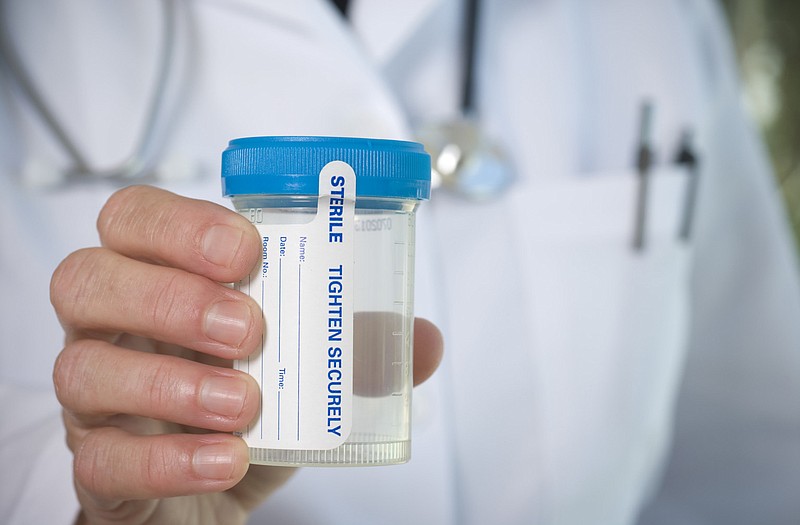Jefferson City High School could expand its drug-testing program to include organizations beyond sports, Activities Director Mark Caballero told the Board of Education Monday evening.
If approved by the board, the following programs would be added to the drug testing policy: band, choir, orchestra, speech, debate and quiz/scholar bowl. All are sponsored by the Missouri State High School Activities Association (MSHSAA).
Non-MSHSAA clubs - like Future Farmers of America and Future Business Leaders of America - will not be included.
"We've had a lot of parents, teachers and sponsors ask for this," he said. "I think it's an outstanding program. I really do."
Caballero said the drug testing program is intended to be preventative and guidance-oriented.
Under current policy, the district tests all student-athletes in the fall. The district continues to administer randoms drug tests to 10 percent of student-athletes on a weekly basis.
If the board approves changes, Caballero suggested there could be two sessions for "bulk" testing each fall. The first, for fall sports, would be held in early August. The second, for all year-round activities, would be held in September. Random drug tests would start after Labor Day weekend and the first week of October, respectively.
To keep costs down, Caballero suggested the random drug tests could be divided between the sports and fine arts/academic programs. Five percent of the test-takers could be derived from the fine arts/academic programs and 5 percent could continue to be student-athletes.
"This would allow for the monthly random pool to remain at its current size of roughly 75 to 90 participating students," he said. "This would maintain the relative cost to the district for random testing."
He also explained a second, more-expensive proposal that would maintain the status-quo for athletes and create a second pool of year-round activity participants. Ten percent of both groups would be sampled monthly.
Caballero told the board the first proposal is "more manageable both logistically and financially." He said the second proposal would "vastly increase the preparation and administration time for random tests."
"There are also concerns about facility availability and the near doubling of costs," he added.
The first proposal is estimated to cost the district between $15,000 to $19,000 annually. The second proposal is estimated at $20,000 to $26,000.
The tests are designed to catch the use of street drugs, marijuana, methamphetamine and prescription drugs. They are not designed to determine if students are using steroids, he said.
"We don't have a considerable issue (with steroids)," he said.
"What we're trying to do is make it a more-preventative thing and help the kids," Caballero explained. "And, if there are issues - and we've had a few - we get to help parents and kids get through that together."
According to a drug testing summary included in Caballero's presentation, nine students in the 2012-13 school year and 15 students in the 2013-2014 school year tested positive for drugs. (In that latter year, two were due to medications.)
Caballero said he viewed the proposed testing program as a moderate approach.
"Some programs around the state are very authoritative, very aggressive," he noted. "You know, all kids can make a mistake. We're trying to help the kids and move on from there."
On an unrelated topic, Caballero recommended that senior citizens be allowed to attend most regular-season games and events for free.
"In the big scheme, financially, it's not going to rock the boat," he said.
The idea was successfully tried at the Capital City baseball tournament, he said.
"It was met with so many positive comments," he said. "The better we take care of our senior citizens, the better off we'll be, because they've spent a lifetime paying for our community, and helping us and being good partners."

